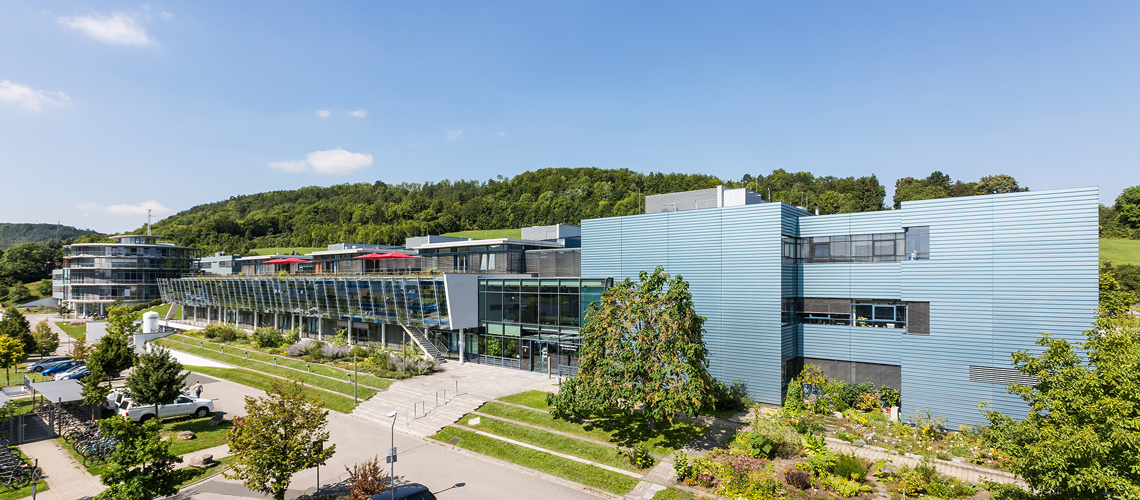
The Max Planck Institute of Molecular Cell Biology and Genetics (MPI-CBG) in Dresden, Germany, is an international research institute focused on cell and developmental biology. Currently about 500 employees from over 50 countries work at the institute in a highly collaborative and curiosity-driven environment. Our research programs are interdisciplinary and span multiple scales of magnitude, from molecular assemblies to organelles, cells, tissues, organs, and organisms. MPI-CBG has twice been awarded the title “Best Place to Work” (Academia and postdocs) by the journal “The Scientist”. The Center for Systems Biology Dresden (CSBD) is a leading research center in theoretical and computational approaches to living systems; its research program brings together computer scientists, theoretical physicists, mathematicians, and engineers with biologists and medical researchers to create a vibrant, interdisciplinary working environment. Our institute is well known for its flat organizational structure, collegiality, shared resources, equal opportunities, and support for families.
The MPI-CBG and CSBD are hiring a Bioinformatician/Postdoctoral Researcher in Next Generation Sequencing (NGS).
We are seeking a highly motivated bioinformatician with a PhD in Bioinformatics or a biologist with strong interest in computational analysis interested in answering biological questions in the area of stem cell biology and regenerative medicine. Specifically, the candidate’s work focus will be on the development, application and validation of novel bioinformatic analyses and workflows in the area of NGS including transcriptomics, epigenomics and spatial transcriptomics.
The Huch group works asking questions on how tissues regenerate from the molecular to the tissue scale using the liver and pancreas as models. For that we combine mouse models, as an in vivo model of tissue regeneration with human and mouse organoid models we have pioneered over the years (Huch et al., Nature 2013, Huch et al., Cell 2015, Broutier et al., Nature Medicine 2017). Our interest in omics and other dataset analyses ranges from epigenome to metabolome and cell-cell interactions, as reflected in our recent publications (Aloia et al., Nature Cell Biology 2019, Prior et al., Development 2019, Cordero-Espinoza et al Cell Stem Cell 2021, Belenguer et al., Nature Communications 2022), where we have analysed a wide range of datasets ranging from DNA methylation and hydroxymethylation, bulk and single cell RNA datasets or lipidomic datasets. We have a long-standing track record of national and international collaborators, with whom we also collaborate on the analysis of these datasets. The successful candidate will be embedded in the Huch lab and work in close collaboration with bioinformaticians of the Scientific Computing Facility, dedicated to supporting the projects and science taking place within the MPI-CBG.
Main Responsibilities
- Development of pipelines for processing and analysis of NGS data such as bulk RNAseq, single cell RNAseq, Bisulfite-seq, ChiPseq, ATACseq and HiC datasets
- Establishment of data quality control metrics and development of novel analysis algorithms if necessary
- Performance of data analyses including (multi-omics) data integration, clustering, differential gene expression, gene set enrichment, trajectory analysis, chromatin accessibility, methylation and histone modifications
- Assistance with effective result visualization, reporting and publishing
Essential Qualifications
- PhD in Bioinformatics or in Biology but with a strong background in bioinformatics, computational biology or computer science
- Proven track record of productivity and experience in working with NGS data alongside deep knowledge in biology
- Demonstrated programming skills in R or Python
- Experience with the development and documentation of scripts and analysis workflows/tools including results visualization and reporting
- Critical thinking and independent learning ability, as well as excellent written and oral communication skills in English are essential.
Desirable Qualifications
- Prior knowledge in the following fields is advantageous:
- o Unix and shell scripting
- o Analysis of large datasets including the usage of high performance computing
- o Development of novel algorithms for bioinformatics tasks
- o Workflow management and version control systems
- o Advanced statistics
- o Analysis of complex NGS data sets
- o Lipidomics analysis
Our offer
The full-time position is for an initial period of 2 years with the possibility of extension. We offer:
- A varied and interesting job in a modern, scientific, and international environment.
- Remuneration based on qualifications, activities, and experience in accordance with TVöD Bund (salary agreement for public service), up to EG13
- Social benefits of the public service (company pension scheme (VBL), annual special payment, subsidy for VVO job ticket, group accident insurance)
- Opportunities for regular professional exchange and individual training and personal development.
- Active measures to promote company health management and work-life balance
- Possibility for home office and mobile work upon agreement
The Max Planck Society strives for gender and diversity equality. We welcome applications from all backgrounds.
Your application
Please submit your complete application via our online application system stating 2023-Bioinformatician-NGS-1110
Interested candidates should submit a single PDF file comprising:
(1) Cover letter explaining your motivation to join our research group, research interests and experiences
(2) CV including fellowships/awards/honors, conference participation, and publications
(3) Relevant academic and professional certificates
Applications will be assessed on a rolling basis.
For further details on the position offered, please contact Meritxell Huch (huch@mpi-cbg.de). Follow us on Twitter @MeriHuchlab.





